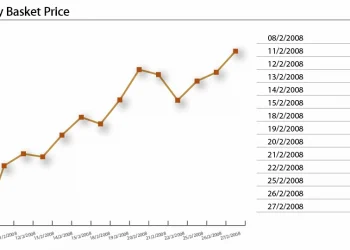By Sunil Karunanayake
From the days of James Taylor and Thomas J Lipton, Scottish names synonymous to tea, up to present-day Sri Lanka, tea has remained a strong link in the Sri Lankan economy, though the industry faced numerous setbacks through natural as well as man-made disasters. Early developments of the railways, road network, and even ports and banking ran parallel to the fortunes of the tea sector.
The 1971 land reform and its aftermath politicisation of the plantations saw tea expertise fleeing the estates, while the 1989 insurrection caused lots of damage via burnt factories and displaced plantation personnel. These adverse conditions, no doubt, provided opportunities for the global competitors and caused enormous losses for our country. Fortunately, the 1991 privatisation programme revitalised this sector and gradually covered lost ground. The achievement of US$ 1bn mark in 2007 is a tribute to the dedication and commitment of all stakeholders including the regulators.
According to the statistics released by Forbes & Walker in 2007, Sri Lanka exported 311.7 million kgs of tea at a value of Rs 113.5 bn (exceeding US$ 1 bn), with an average export FOB price of Rs 364.78 (approx US$ 3+). Though production and exports are below records of 2006, all other indicators seem encouraging. While this is not an occasion for complacency and Tamashas, it reflects the immense potential of tea exports. The need now is to gear for the not impossible US$ 2-billion target. What is striking is the growth demonstrated by high value added items like tea bags and instant tea, which Sri Lanka needs to capitalise on. Top Sri Lankan export destinations are CIS, UAE, Iran, Syria, and Japan.
The Tea Board’s role is to help the producers and packers to move with increasing demands from importers. The world at large is becoming more quality-conscious, and demands from importers for hygienic standards are increasing. Similarly, there is a growing concern for Mineral Residual Level (MRL) standards, at times varying with destinations. Ethical Tea Partnership (ETP), a consortium for certification funded by leading packers, ensures better conditions for plantation workers on housing, health, education, safety, and other issues.
The research factor must be given more priority, as it is the vehicle for the future. The Government must ensure that the tea CESS recovered from exports be ploughed back to the industry, which will also accord it a sustainable export performance.
If we are to set targets on higher export earnings, branding may become a necessary task. The Government must also seriously consider import and re-blending for value addition to boost export earnings. Tea is a global commodity in a global market with increasing preference towards it as a healthy beverage, if not the healthiest.
Sunil Karunanayake is a Fellow of the Institute of Chartered Accountants of Sri Lanka & Chartered Institute of Management Accountants UK and holds a MBA from the Postgraduate Institute of Management of the University of Sri Jayawardenapura. His professional career was spent working in various top companies. He is a regular columnist of a leading Sunday financial weekly.



